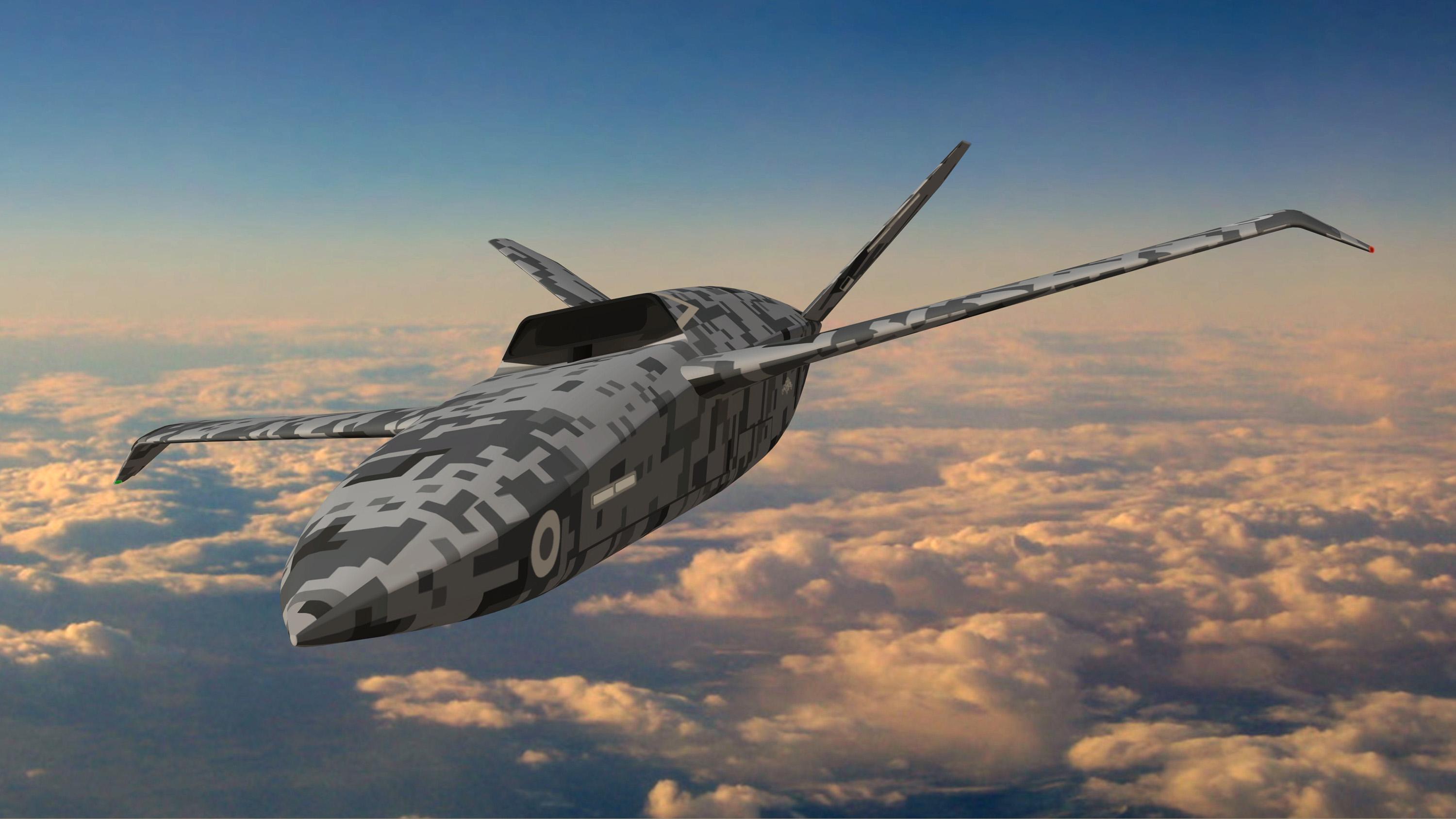
FARNBOROUGH—Industry is beating a path to the Royal Air Force’s door after Air Chief Marshal Sir Mike Wigston laid out plans for the air force to acquire what he called “scalable uncrewed systems.”
The RAF had apparently learned what it could from the £30 million ($36 million) Mosquito technology demonstration program phase of the Lightweight Affordable Novel Combat Aircraft (LANCA) technology demonstration program, which the RAF announced it was closing out suddenly at the end of June.
Commanders had concluded that what they actually needed was a capability that was smaller than what was proposed for Mosquito, and one that could be more rapidly fielded.
These future platforms will be of the “loyal wingman, autonomous combat air vehicle [type], but with specific use cases,” he told journalists at the Global Air & Space Chiefs’ Conference 2022 in London July 14.
Wigston has charged the RAF’s Rapid Capabilities Office to launch a series of competitions in the fall for these scalable systems, aiming for a fly-off to choose a final winner.
Such systems are seen as a way of achieving affordable mass for air forces, which have seen their front-line combat aircraft fleets depleted and have been unable to buy or crew large fleets of fighters.
He may have plenty of options to choose from. International air chiefs were greeted by a bevy of such air systems as they entered and exited the chalet line of the Royal International Air Tattoo, held July 15-17.
At one end, BAE Systems revealed its family of UAS concepts: one a 3.5-ton attritable system the size of a small jet trainer; the second a smaller, expendable but recoverable UAS that could be swarmed in numbers to confuse enemy air defenses.
At the other end was a mockup of Northrop Grumman’s Model 437, which the company currently sees as a “risk modifier” for future unmanned programs, but could became a scalable system. And at the same time, Lockheed Martin’s Skunk Works was unveiling its vision for a distributed team of advanced and expendable platforms.
Boeing also believes it has something to offer. The company’s MQ-28 Ghost Bat Airpower Teaming System developed in conjunction with Australia is becoming a mature platform.
“We do believe that there is an opportunity here,” says Anna Keeling, managing director of Boeing Defense UK. “We know that there is an interest from both the Royal Air Force and from our [British Royal] Navy … and we would be thrilled to get that demand signal from our customer.”
Mosquito should not be seen as a failure even if it was deemed unlikely to achieve the results in the expected time frame, Wigston suggests. The RAF and industry benefited from what he called a “huge amount” of experience in digital design and novel manufacturing techniques through the exercise. “I wanted to stop it, stop it quickly, learn from it quickly and move on,” he said. “Now we will be much more focused on a rapid delivery to the warfighter.”

